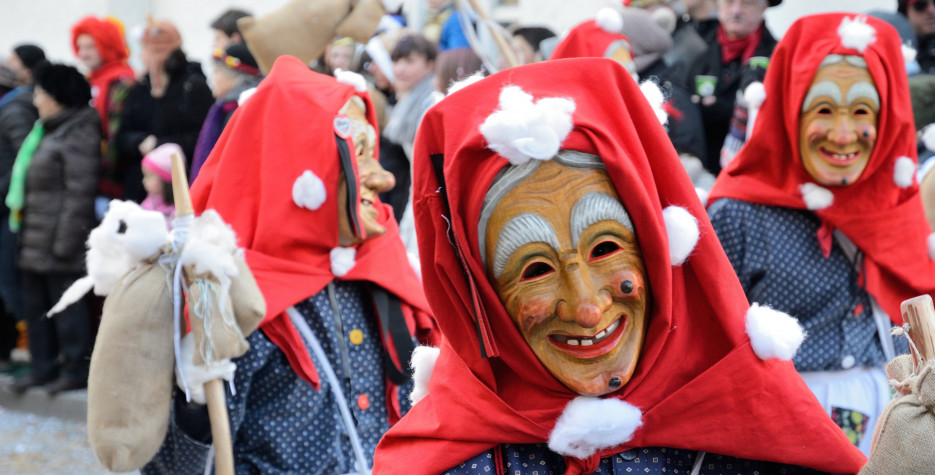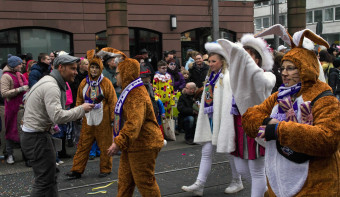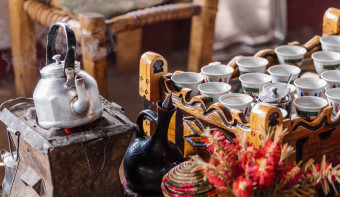About Fasching
When is Fasching?
In some cities in Germany, large carnivals take place on the Thursday, (Fat Thursday) Monday (Shrove Monday or Rose Monday) and Tuesday (Fat Tuesday) before Ash Wednesday.
They are known in southwest Germany as Fastnacht, as Fasching in Bavaria and Austria and as Karneval in the Rhineland.
History of Fasching
Marking the period before Lent, carnival season is a time of parades, elaborate costumes, masked balls and street parties that culminates on Shrove Tuesday.
Fasching can be traced back into pagan times. It started as an event to drive out the winter and the ghosts of darkness who had begun to lose their powers as the sun started to warm up in springtime. Rituals in these areas include processions where people generate lots of noise and masquerade with horrifying face masks in order to scare away the ghosts of winter and at the same time avoid their revenge. It was also a festival to honour the Goddess Freya and to celebrate fertility with the beginning of spring.
Early missionaries tried to shift the meaning of this celebration to a more Christian ritual, and so the Carnival came to mark the beginning of Lent - a time of reflection and abstinence which lasts until Easter where people would abstain from eating meat, eggs or milk.
The days before Lent would be the last opportunity to eat these foods for forty days and therefore a great excuse for parties and feasts. This is the origin of the alias name Karneval as it is derived from Latin carne vale, meaning 'farewell to meat'. In the Middle Ages, this command was not too difficult to follow because food stocks usually were expended by this time of year, and it was a good idea to consume the remaining stocks which would most likely start to rot in the following weeks.
Another tradition is Starkbier (stout). This is a very potent beer brewed by the monks at this time for use during Lent when they were not allowed to eat. They made up for the calories by drinking this darker, richer beer. The famous Starkbier-Anstich (celebration of opening the first Starkbier keg) at the Nockherberg facility in Munich is a story in itself...
Many people often wonder why monks - of all people - were allowed to drink such strong beer during their fasts. As the legend goes, they originally transported the beer over the Alps to distant Rome in order to convince the "Holy Father" of its suitability for fasting. When they eventually reached the Pope, however, it had turned sour and was undrinkable. The Pope had no qualms, therefore, about permitting the monks to use the beer as liquid sustenance during Lent.
Officially the Carnival season, also known as the "Fifth Season", begins at 11:11 am on November 11th. With people's attention taken by Advent and Christmas, there isn't much in the way of Carnival activities taking place until we get to the week before Ash Wednesday.
Other Observances on February 16th 2026
Maslenitsa
Read More






